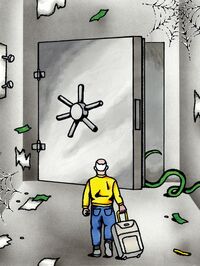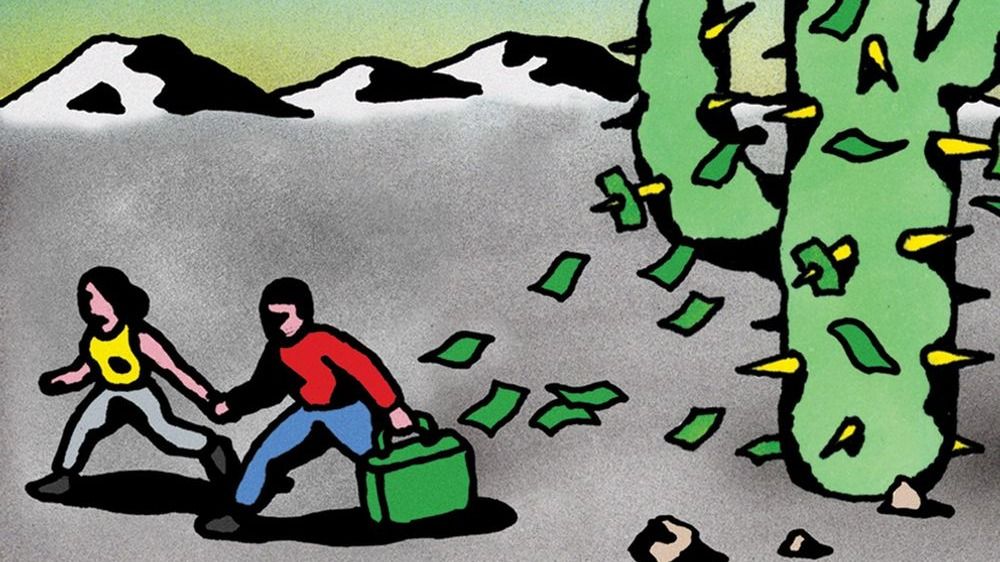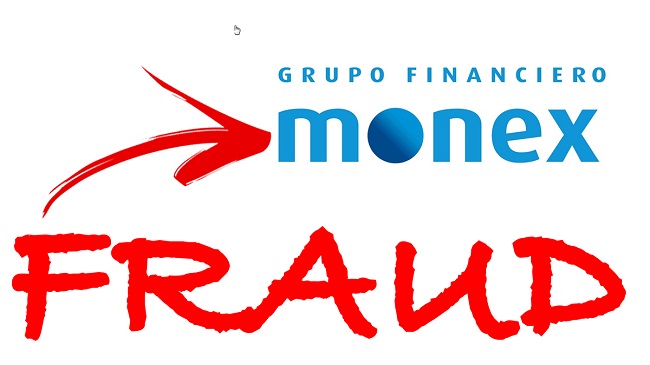In late December, Kathy Machir called Marcela Zavala Taylor, her banker of nine years at Mexico’s Monex Casa de Bolsa, to get cash for contractors building her retirement home in San Miguel de Allende. Typically, Zavala would wire money or dispatch her assistant, Juan, on his motorcycle with an envelope full of pesos. Monex, with $5.2 billion in assets and operations in the U.S., was woven into the lives of Machir and the 10,000 other Americans who’ve moved to San Miguel de Allende.
The transfer didn’t happen. Juan didn’t show, Zavala didn’t return calls, and Kathy and Jim Machir discovered that their nest egg was gone. When the Machirs and other San Miguel expatriates met with Monex officials in early January, the bankers told some of them that about $40 million was missing from as many as 158 accounts, many belonging to English-speaking Americans. A dozen people interviewed by Bloomberg News say that bank statements Zavala sent them purporting to show full accounts were apparently falsified. Most say the bank has told them little since they filed complaints, and some say Monex tried to settle for far less than the balances owed. “When they told us we had 6 pesos [32¢] in our accounts, I just felt sick to my stomach,” Kathy Machir says. “Since then, they have not dealt with us in good faith.”
The scandal has upended the expatriate community in San Miguel, a city of 69,000 about 500 miles south of McAllen, Texas. Mostly retirees, they have to navigate a society with fewer legal and financial protections than they’d get in the U.S. Fraud is becoming more common, says Kevin Carr, founder of financial technology firm Finiden in Washington, D.C., and formerly the U.S. Department of the Treasury’s primary representative in Mexico. “Mexican authorities try to prosecute these cases but often aren’t successful.” In 2018 there were 7.3 million complaints of fraud involving 18.9 billion pesos, about $1 billion, according to Condusef, Mexico’s consumer protection agency. That’s more than double the number of claims in 2014.

Monex said in a statement that it’s looking into accusations against Zavala: “Legal action is continuing in the case, and details cannot be disclosed so as not to hinder the investigation.” The bank is working with clients and has settled with 70%, spokeswoman Eva Gutierrez said in a release Thursday. Alberto Loyola, an attorney representing Monex, declined to be interviewed. Some clients interviewed by Bloomberg News who settled for reimbursement say Monex required them to file charges with the Procuraduria General de Justicia, the equivalent of an Attorney General’s Office, in Mexico City, where the bank is headquartered, and to name Zavala. The agency didn’t respond to multiple requests for comment.
Zavala, who hasn’t been charged, said in a phone conversation that she’s living in San Miguel but declined to comment further: “By instruction of my lawyers I cannot say anything. Goodbye.” Peggy Taylor, Zavala’s mother, says her daughter is taking the fall. “Monex has a lot to do with this, too,” she says.
Zavala, who worked for Monex about 20 years, became San Miguel’s banker of choice by winning over expats with promises of fat returns on accounts she claimed were dollar-denominated and immune to the peso’s fluctuations. She was local royalty: daughter of former Mayor Manuel Zavala and his Texas-born wife, Taylor, an agent for Christie’s International Real Estate.

Americans’ Life Savings Disappear From Mexican Bank Accounts
The Machirs, after discovering their account had been drained, met Loyola, the outside attorney representing Monex. They say he blamed Zavala; they also say she probably couldn’t have committed any fraud alone. “Don’t worry. We will make you whole again,” Kathy Machir recalls Loyola saying. Almost four months later, with no reimbursement in sight, the Machirs have been liquidating assets. In January, Kathy cashed in her life insurance policy, and in March they drove their 2012 Subaru to the U.S. and sold it for $9,300 to pay their contractors.
Kenneth Karger, a retired dentist in Fort Worth with property in Mexico, says Monex owes him about $400,000. He stopped getting full statements after June, as did the Machirs. Karger says Zavala told him Monex was changing to a new online banking system and sent emails showing a plausible balance. Later, Karger went through statements he retrieved from Monex and found unauthorized withdrawals and wire transfers.
A notarized letter that Karger’s attorney sent to top Monex executives on April 15 lists 12 allegations of fraud, including transferring money to people whom the depositors didn’t know, making unauthorized investments, and changing account login information. “If a relatively low-level employee can go into your account, change your email address for notifications, change your password, redirect deposits, withdrawals, and wire transfers,” Karger says, “then you have a kindergarten-level security system safeguarding tens of millions of dollars.”
“Part of this is my fault. I wasn’t even remotely suspicious”
Howard Haynes, 83, moved to San Miguel 22 years ago from Kansas City, Mo. Zavala, he says, was one of the first people he met. She pitched him on Monex in 2004, promising security. Early on, his account returned 14% with stocks such as Wal-Mart de Mexico. Zavala would get him funds on short notice. Haynes recommended her to friends. When Zavala stopped returning calls in December, Monex told him his account, which Zavala said held a substantial sum, had less than $13,000. Haynes says when he obtained his real statement, it showed money had been transferred to people he didn’t know.
Monex says it owes him only the money currently in the account, Haynes says. Company officials also told him that either he or his partner opened an account in his name and transferred almost all of this money to that new account at the company’s brokerage entity, Casa de Bolsa. Then the money disappeared. Haynes says he never authorized a new account or a transfer of his money. “Part of this is my fault,” he says. “I wasn’t even remotely suspicious.”
Alysann Posner, a former vice president of the Chicago Mercantile Exchange who lives in San Miguel, says she had trouble getting timely statements from Monex since she opened her account four years ago. On Dec. 18 she tried to transfer her funds to another bank. When the transfer didn’t happen quickly, she started making calls. Monex told her the account and that of her mother, who is 86, were reduced to almost nothing. Posner says Monex has offered her about 60% of what she believes she is owed and she’s suing Monex in Mexican courts.

The bank has settled with some customers, but for less than they think they were owed. Cory Gray, 86, says she opened a Monex account six years ago and has recently had a tough time getting regular statements. She last heard from Zavala on Dec. 18 and was later told by Monex that she has next to nothing in her account. Monex offered her 70¢ on the dollar. She took it, afraid that fighting Monex would leave her with no cash. “I thought I would get nothing,” Gray says. “That’s why I settled.”
Bruce Brown, a retired sound engineer from Australia, says he got his full $250,000 back after filing a complaint against Zavala with the Procuraduria General de Justicia. But after Brown got his check, a Monex representative called and asked for $50,000. The bank, the man said, had overpaid. “I told them to shove it,” Brown says. —With Justin Villamil(Updates the fourth paragraph with a further statement from Monex. An earlier version of this story corrected the first name of Howard Haynes in the 10th paragraph.)
BOTTOM LINE – Financial fraud is exploding in Mexico, and American expats with accounts at Monex appear to be among the latest victims.
Source: BLOOMBERG
